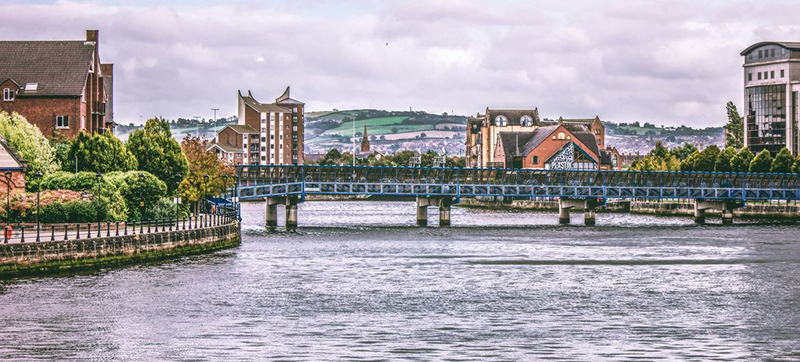Rights experts urge UK to redraft controversial Northern Ireland bill

New York: The United Kingdom should rewrite proposed legislation covering the 30-year conflict in Northern Ireland, known as the “Troubles”, because it fails to comply with the obligation to investigate serious violations and denies truth and remedy for the victims, two UN human rights experts said on Thursday.
The Northern Ireland Troubles (Legacy and Reconciliation) Bill was introduced in Parliament in May and passed a second reading in the House of Lords last month.
Further review is set to take place in January.
Little access to remedy
The UN experts are concerned that the Bill bans, and in some cases unduly restricts, conflict-related civil actions, coronial inquests, and police complaints into deaths, torture and other harmful conduct.
Instead, reviews will be undertaken by an Independent Commission for Reconciliation and Information Recovery (ICRIR).
“The Bill will substantially hamper victims’ access to remedy before criminal and civil courts for the serious human rights violations and abuses suffered. It would further preclude information recovery and reparations for those victims who have for decades struggled to get justice and redress for the harm endured,” the experts said in a statement.
About the Troubles
More than 3,500 people were killed, and thousands more injured, during the Troubles, which began in the late 1960s.
Fighting between British forces and the Irish Republican Army (IRA), and other paramilitary groups across the Catholic-Protestant sectarian divide, effectively ended with the signing of the Good Friday Agreement in April 1998, led by the Government of Tony Blair and political leaders from all sides – including the Republic of Ireland.
‘De-facto amnesty’
The experts pointed out that the Troubles Bill offers conditional immunity to people participating in the ICRIR, including those accused of committing grave human rights violations.
“The immunity scheme envisaged in the Bill, particularly in view of the low threshold required for granting immunity and the lack of review mechanisms, would be tantamount to a de-facto amnesty scheme,” they said.
Furthermore, the Bill “appears to conflate reconciliation with impunity, as well as oppose legal accountability, an essential pillar of transitional justice processes, to truth, information recovery and reconciliation.”
Redraft the Bill
The essential components of truth, justice, reparation, memorialisation and guarantees of non-recurrence, “cannot be traded off against one another in a ‘pick and choose’ exercise”, said the experts.
They urged the UK authorities to consider withdrawing the Bill and redrafting it to fully comply with international and regional human rights standards, in effective consultation with victims and civil society
If approved, the Bill would thwart victims’ right to truth and justice, undermine the rule of law, and the United Kingdom would be in flagrant contravention of its international human rights obligations, they said.
Moreover, it would breach the Good Friday Agreement, which could undermine the Troubles-related peace process and set a damaging and concerning example for other countries emerging from conflict.
Role of UN experts
The UN experts who issued the statement are Fabián Salvioli, Special Rapporteur on the promotion of truth, justice, reparation and guarantees of non-recurrence, and Mr. Morris Tidball-Binz, Special Rapporteur on extrajudicial, summary or arbitrary executions.
They were appointed by the UN Human Rights Council, which is based in Geneva.
The experts are part of the Council’s Special Procedures mechanism to monitor and report on specific human rights situations or thematic issues.



